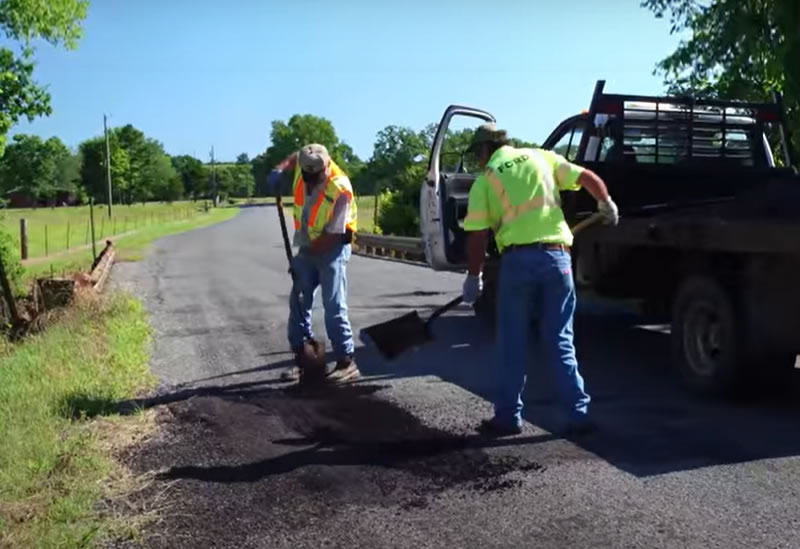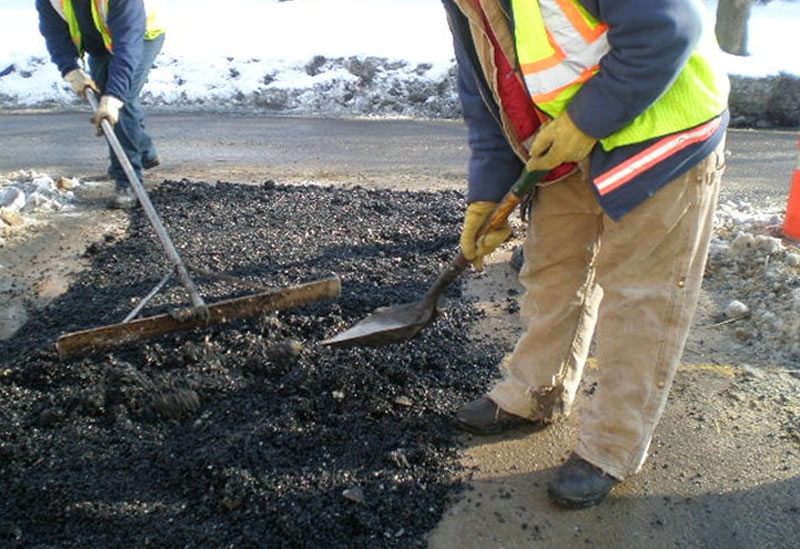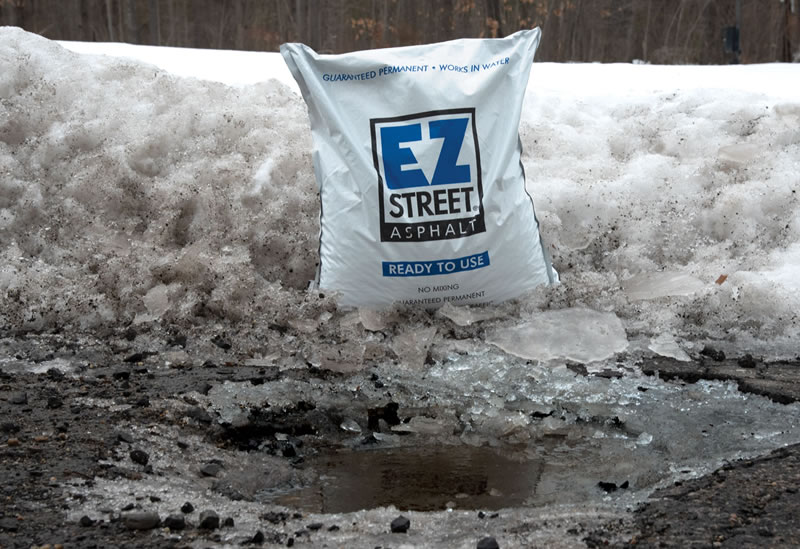The repair of potholes with cold mix asphalt is typically associated with winter, when hot mix plants are closed. But even in summer the colder version of asphalt is sometimes used because it’s just a lot more convenient for spot road repairs.
The winter season generally has the most potholes, given the nature of freeze-thaw cycles and how snow and ice push cracked pavement apart. That’s when a cold mix asphalt (CMA) treatment is used to temporarily repair the streets and highways. Since most cold mixes do not adhere to the intact pavement it simply doesn’t last more than a few months (if that).

Using cold mix in the summer

Using cold mix in the winter
Cold mix in warm months
But municipal, state, and federal highway maintenance crews often will use a cold pothole patch material in the summer too. Why? Pothole repairs are sometimes done in the course of other maintenance work. Keeping a bag of cold mix in the truck enables them to fill a pothole when they happen upon one. It would be impractical to try keeping hot mix asphalt on hand “just in case” because that would require a large, diesel-fired asphalt hot box to keep the mix at the perfect temperature, which is between 275 and 300 degrees F.
Still, a cold mix that lasts is possible. EZ Street Premium Cold Asphalt is specially formulated with modified polymers that make it stick. Winter, spring, summer, or fall, this material that can be used to fill cracks and potholes regardless of temperature. Even the presence of moisture in the pothole does not affect the repair.
The problems with hot mix asphalt (HMA)
Even under well-managed summertime paving and pothole repair conditions, it is easy for things to go awry. And that can lead to unstable pavement and more potholes.
A study published in the Journal of Traffic and Transportation Engineering (“Thermal segregation of asphalt material in road repair,” Byzyka et al., August 2017, pages 360-371) found that “thermal segregation [temperature differences] is developed in patching in both winter and summer seasons,” due to the time it takes to haul HMA from the plant to road repair sites. When the temperature of the mix is too cool, the viscous bitumen fails to allow the aggregate to become fully compacted and bond with surrounding, intact pavement. The net result is precipitation gets into the cracks and crannies and repeats the pothole forming process all over again.
With EZ Street Premium Cold Asphalt that narrow temperature range, in the mix as well as in the surrounding pavement, is of no concern. Crews lay it in and tamp it down, then drive away – no need for a second repair because this cold mix stays with the pavement, permanently.










